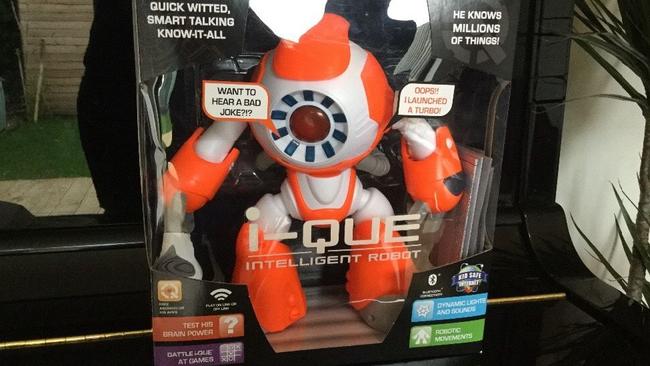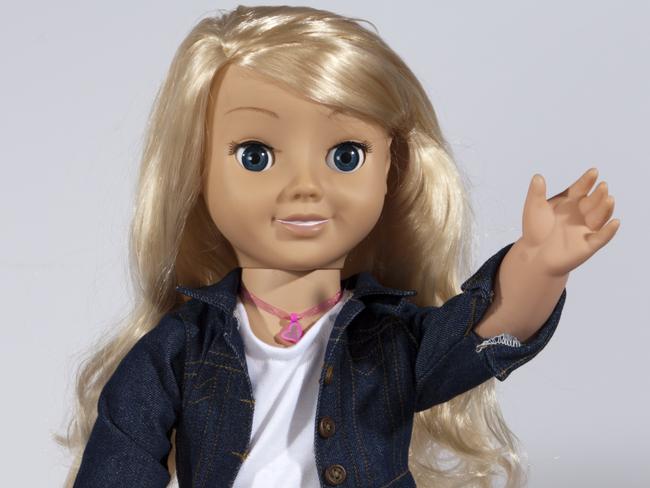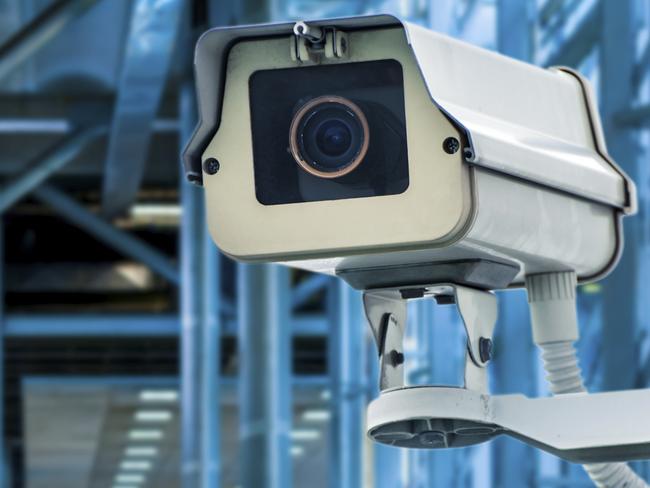How the internet of things could be spying on you
BIG Brother is watching. You house could be spying on you through seemingly harmless everyday appliances.

BIG Brother is watching.
Your front door, television and child’s doll could all be spying on you.
The internet of things, everyday objects connected to the web, can send and receive data and appliances have the power to gain control and track your behaviour and movements.
At least 40 per cent of Australian homes now have at least one internet of things device and they are disguised as normal appliances. They can be fridges, kettles or even window blinds.
There are warnings about the danger of having an internet of things device in your home.
Just last year a Norwegian Consumer Council discovered a children’s doll was recording what children were saying and sending the information to a US company, which could share and use the data in a number of different ways.
The consumer council found internet-connected toys My Friend Cayla and i-Que breached several consumer laws.

DEVICES TRACK YOU
Lecturer at UNSW’s School of Taxation and Business Law, Kayleen Manwaring, told news.com.au people needed to be cautious.
The internet of things has been beneficial to health and aged care and agriculture, but Ms Manwaring said people using it frivolously needed to understand what information items could gather.
“Many of the internet of things devices collect a whole lot of data about you, what you’re doing, your kids, your home and it may not be the sort of data you want to make available,” she said.
Ms Manwaring said people needed to start thinking about things before they bought them.
“Do you really need that internet-connected hairbrush,” she said.
“A lot of devices can track your geo location. The internet of things knows where you are, when you leave home, when you come home.
“Mobile phones track you, the websites you visit.”
Ms Manwaring said there was never a way of knowing where the personal information about you went, and what it was used for. Some companies claim to use the information for marketing, but the fine print is never quite clear enough, according to Ms Manwaring.
“A lot of consumer devices aren’t very secure and there’s not a lot of security protocols,” she said.
“It’s not just the corporates who can get into your daughter’s doll, but malicious hackers getting into these devices.
“There’s not only data security flaws. The internet of things in some circumstances allow malicious hackers to control devices or attack other devices.”

DEVICES CAN BE DANGEROUS
Ms Manwaring said the internet of things could be dangerous because we didn’t know what the devices were trying to achieve and who they were trying to target.
The My Friend Cayla doll also had a security flaw where strangers could talk and listen through the doll, and there were pre-programmed phrases that mentioned specific brands targeting children.
“The problem is we really don’t know what they are doing with that data,” Ms Manwaring said.
“We could be optimistic and say they’re not doing anything suspicious, but unless you tell me exactly what you’re doing with it — it’s well known marketers employ behavioural psychologists and the point is to influence us to buy products. That might be OK, there’s plenty of times we buy products, but it’s a problem when they are targeting vulnerable people like children.”
Ms Manwaring said devices you bought never really belonged to you and would stop functioning without certain embedded software.
“IoT devices have the potential to collect more intimate data about individuals than was possible with previous devices,” Ms Manwaring wrote in an article on The Conversation.
“This data can then be used to create profiles that give incredible insight into consumers, and can even predict behaviour.”
Ms Manwaring said the law may not protect people from the internet of things.
“Many IoT devices put consumer privacy at risk, but the Privacy Act has significant limitations, as the definition of ‘personal information’ is very narrow,” she wrote.
In the future, consumers and regulators could pursue device suppliers for information they are getting under Australia Consumer Law, but Ms Manwaring said that was still a grey area.
“We don’t know what ‘acceptable quality’ is when it comes to some of these devices, for instance. Is an internet-connected kettle that boils water perfectly well, but can be easily hacked, of acceptable quality?” she said.
Ms Manwaring said consumers should think hard about the risks of these seemingly harmless items before purchasing them.



